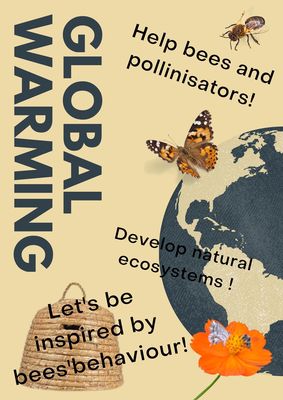
It is a project about biodiversity and pollination that are recognized by scientists as possible points of support against global warming, a project in which children will be inspired by the behavior of bees in the hive to work in close collaboration in within the class and between classes throughout the activities.
The current pandemic is accentuating fallback behaviors. We become suspicious, are afraid of others. According to scientists, pandemics will be more and more numerous in the future because they would be partly due to global warming and the impact of human beings on ecosystems. We believe that schools can change things by experiencing, from kindergarten, that everyone has a role to play, by learning despite our fears to collaborate (like bees in a hive).
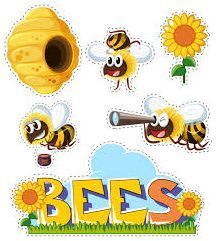
Children will learn about bees ( wild bees and honey bees) an other pollinisators and how to help and protect them :
They can create beehotels (for lonely and wild bees), diversity hives for honey bees. To do so they have to know how it works to find proper material that can stay outside for a long time without any danger or toxicity for bees.
To give them enough to eat and develop they will learn about flowers and plants that attract them. They will share their knowledges with their partners. They will sow some of them or make seedballs.
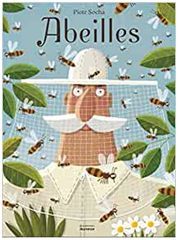
Teachers will read them many stories about bees that they can play and act …
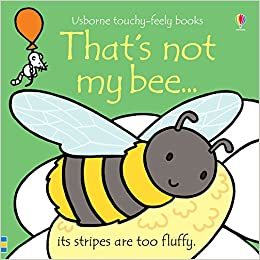
Children will use sensorial games to learn by playing and outdoor activities. To reuse their knowledges in other contexts they ‘ll create beebot mats and will play collaboratively.
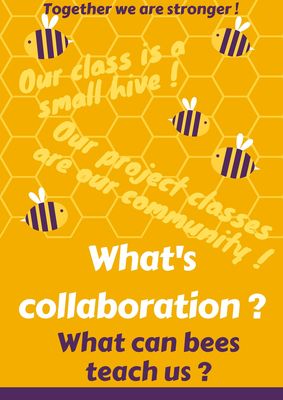
Collaboration is when you need others to achieve what you want to do or create.
This means not all the students will necessarily do the same things at the same time but they will have to explore everything at once exactly like bees in the beehive.
The beebot games will explore collaboration (playing against the clock, teams that don’t play against each other but with the same goal.
To develop collaboration practises among pupils we’ll propose them knowledges’ markets regularly : children will teach others what they can do best (peer to peer learning). Each child can find something to teach because everyone has got talents ! Other pupils can choose what they want to learn from others.
Bees were on earth before dinosaurs’age. They’ve survived so many changes. Humans don’t know everything ! Nature can teach us as well ! Let’s be inspired by nature and be connected to it !